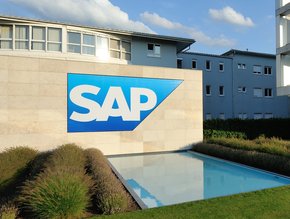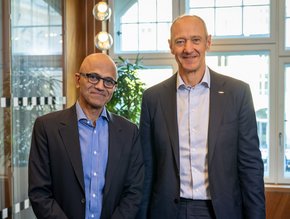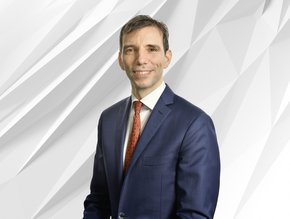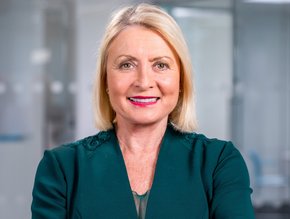The evolution of diversity and inclusion in the UAE

Business Chief talks to Noor Alhashmi, SVP of Human Capital at Abu Dhabi Finance, to discuss diversity and inclusion in the Middle East.
When it comes to diversity and inclusion, Noor Alhashmi, SVP of Human Capital at Abu Dhabi Finance, highlights the importance of recognising the difference between the two. “Diversity is reflected through the diversity of employees within an organisation, while inclusion is measured by the impact of diversity among team members.” Currently, the Middle East is going through a huge transformative period, in which diversity has been the focus of many organisations such as the Dubai Electricity and Water Authority (DEWA), Emirates NBD and Saudi Aramco, “especially around building a rich talent pool, where individuals can share their experience and knowledge from one another to create a high quality learning culture,” Alhashmi explains. “Inclusion is something that comes later when diverse organisations have realised that it is an essential ingredient for success.” In recent years, Alhashmi has seen a shift from diversity and inclusion being reliant on the HR departments within businesses to drive this culture. Instead, “diversity and inclusion have become a crucial metric for organisational success, moving from a ‘nice to have’ to a ‘must have’ very quickly across many corporate structures throughout the United Arab Emirates (UAE). These days businesses are more aware of the value diversity and inclusion can bring to their creativity and productivity, in addition to a diverse experience. Diversity and inclusion are no longer limited to the hiring process, but are now embedded within company values and culture, and rightly so.”
When looking at the progress of diversity and inclusion within the entire UAE, Alhashmi believes it is taking the right steps towards increasing diversity and inclusion. “In 2019 (the year of tolerance), the UAE announced the construction of a multi-faith, Abrahamic Family House complex in Abu Dhabi - the first of its kind - in an effort to instill the values of acceptance and cohesion within society. Additionally, in September 2019, in support of the UAE's objectives of achieving gender equality as a sustainable approach, the Central Bank of the UAE also issued a notice stating that banks and other financial institutions are required to provide services to their individual and business owner customers of both genders equally, and to develop policies and procedures that promote gender equality in all banking and financial transactions, including loans and credit facilities.”
Although Alhashmi has seen the region making the right steps towards diversity and inclusion, she is still seeing evidence of people not understanding the value diversity and inclusion can provide to the UAE. “Some people still don’t understand the value of diversity and inclusion, and the impact these can have on employee retention and high performance. Organisations should be more aware of the potential resistance to diversity and inclusion that can be present within a business due to cultural beliefs, and how to overcome these challenges.” Alhashmi believes that these challenges are fueled by traditional, old-fashioned and outdated mindsets, as well as cultural beliefs which create acceptance barriers when it comes to diversity and inclusion.
SEE ALSO:
Alhashmi explains that the best strategy for removing these barriers and building a more diverse and inclusion culture is “setting clear targets related to diversity within an organisation (gender, nationality, age etc.), in addition to making sure that diversity is impactful through inclusion by creating a sense of belonging where people‘s differences are valued and respected.” Within her own company, Alhashmi discusses Abu Dhabi Finance’s initiatives to improve company-wide inclusion and diversity, in particular its ‘Workplace Behaviours’ programme which has helped to further develop the already high levels of respect and understanding between its employees. “As an organisation, we are committed to achieving our target of having a workforce with an appropriate balance of male and female employees, and so we are placing significant focus and consideration on this during our recruitment and hiring process. Abu Dhabi Finance ensures gender equality in all tiers of our recruitment process, including, most importantly, equal pay.” However, one of the main challenges Alhashmi has found when it comes to putting these initiatives into practice within the company “is the difficulty of sourcing female talent as the talent pool is somewhat limited within the financial industry.”
Reflecting on diversity and inclusion, Alhashmi truly believes that “diversity is important for creativity, innovation and to gain insight into company clients. Inclusion, on the other hand, is crucial for productivity because, whilst we can be diverse in the workforce, high performance comes from understanding and respecting each other through inclusion.” Further reflecting on diversity, Alhashmi comments that “it is a key driver in some of the most successful businesses and concepts throughout history, making it even more important in such a dynamic country as the UAE to tap into these natural assets.” In addition to diversity and inclusion, Alhashmi also acknowledges the importance of individuality, which is often a product of cultural background, mindset and education. “It’s what happens when you hire diverse characters and make sure they are included in an environment that fosters creativity and innovation,” concludes Alhashmi.
For more information on business topics in Africa, please take a look at the latest edition of Business Chief EMEA.






